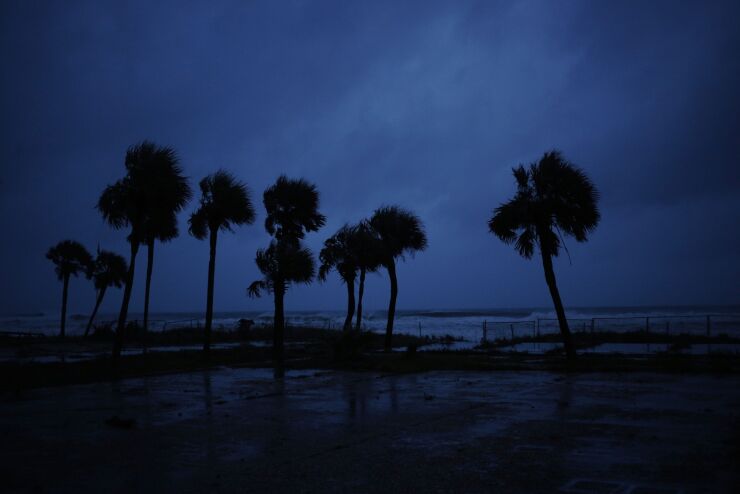Of all weather-related disasters in U.S. history, hurricanes have caused the most deaths and destruction, according to the National Oceanic and Atmospheric Administration (NOAA). Last year exceeded multiple weather records, including the Earth's warmest July ever recorded and the highest monthly sea surface temperature anomaly of any month in all of NOAA's records. The U.S. experienced 28 weather disasters that each reached $1 billion, for a combined total cost at over $93 billion.
So far this year, the U.S. saw the destruction of Hurricane Beryl, which started as a Category 5 storm and made landfall as a Category 1, in the Houston region of Texas, as well as Hurricane Debby, which made landfall twice in Florida first and then South Carolina only days later.
"When you're looking at the macro global environment from a property insurance perspective, one of the biggest drivers of global property insurance pricing and rates is the
As significant portions of the U.S. are at risk during this predicted highly active season, it is important for organizations, businesses and communities to understand the risks and potential impacts of climate on the insurance industry.
Increasing rates
"The fact that insured losses from hurricanes have become larger and more frequent over the past 10 years, insurers are very focused on that and are buying their reinsurance protection. So a lot of insurers… buy reinsurance on their portfolio for catastrophic loss," Prindle stated. "What has happened is that their reinsurance pricing on their portfolio has increased substantially, and to help combat that, the insurance companies have taken much larger retentions on their portfolios."
This ultimately ends up increasing the insurance costs for the end-buyer.
"That's probably the biggest driving factor, aside from increased hurricane activity – that rise in catastrophic treaty reinsurance, which then passes along a substantial amount of that to our clients," he said.
Direct and indirect impacts
Prindle emphasized that hurricane season, as well as other events like severe convective storms, will impact businesses across the country, even those not at direct risk.
"What a lot of people don't realize is that you might not have coastal exposure, or any exposure to U.S. hurricanes, but you're being underwritten by the same insurers that write a lot of exposure in hurricane areas, and they have to buy cat treaties to cover that," said Prindle. "Just because a specific company or client might not have exposure to hurricanes, a higher than average hurricane season can have an impact on their rates as well."
"Through the lens of, let's say, a commercial buyer, it's somewhat going to depend on their operations, exactly, and what they do, if it's a manufacturing risk versus a real estate risk, but definitely having a hurricane preparedness plan in place that has been tested prior to a hurricane is really important," Prindle explained. "And that needs to be tailored to your business. If you're in manufacturing, you need to have other locations you can shift production to and maybe look at other suppliers that you can get products from."
Preventative measures and resources
Prindle also recommends measures like having access to sandbags in case of flooding, installing hurricane shutters and ensuring that your rooftop equipment is adequately secured.
The
Hurricane-specific measures for businesses to implement, like purchasing adequate flood insurance and fortifying important structural risks, can be found in the






